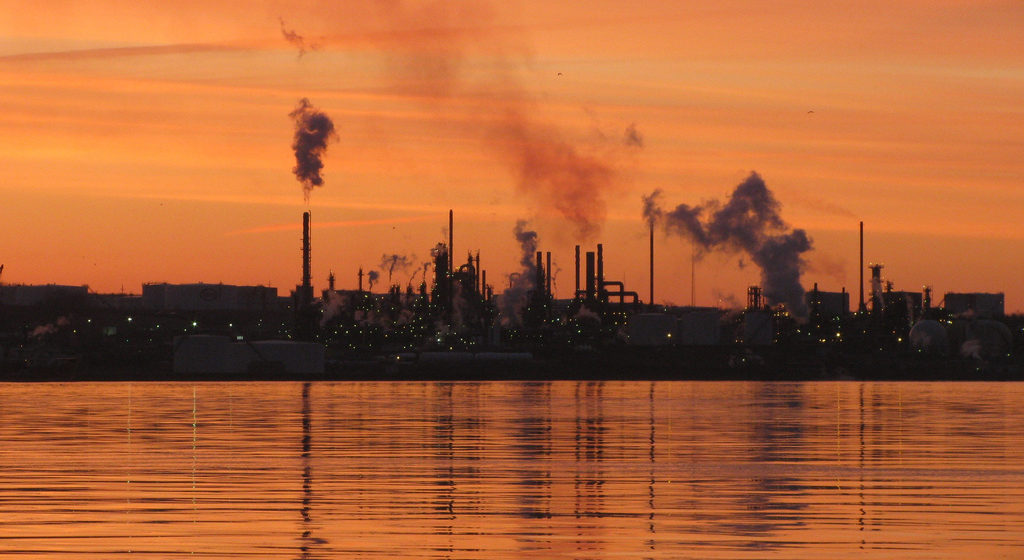Takeaways
Self-insurance” has proved an insufficient financial protection for communities against oil spills, explosions, and leaks.
Washington communities too often foot the costly bills resulting from oil spills.
A new bill in the Washington legislature, HB 1691, would put the responsibility back where it belongs—on oil companies—in the form of fossil fuel risk bonds.
It’s a fairly universal maxim that if you make a mess, you clean it up. Whether you’re a kid in a classroom or a multinational corporation doing business, you owe some basic courtesies to your community.
Unfortunately in Washington, governments at every level face burgeoning economic and financial risks from the fossil fuel industry. Gaps in our legal framework too often leave communities footing the bill for explosions and spills. A new bill in the Washington legislature, HB 1691, introduced by Representative Mia Gregerson (D-33), aims to change that.
A study by Earth Economics in 2019 modeled a spill in the San Juan Islands, finding that a spill of 95,000 barrels of diluted bitumen could cost $142 million to $510 million. Read more.

Specifically, the bill targets the oil-carrying marine vessels and the stationary facilities like refineries and pipelines that service them. Currently, these entities are permitted to “self-insure” against the risks inherent in their business operations. This means the corporation promises to cover the costs of any accidents itself rather than purchase insurance externally. What too often occurs in the case of a self-insured accident, however, is that the company declares bankruptcy or stalls with costly litigation. The community, meanwhile, shoulders the costs: to their waterways, aquatic life and tourism, lands, and livelihoods.
Washingtonians are too familiar with this story. They have seen thousands of barrels of oil poison the Salish Sea over the last 50 years. Over a billion gallons of oil transfer from vessels to on-shore facilities quarterly. Every day, the state faces the risk of an oil spill. Self-insurance has proved insufficient to cover these risks, with Big Oil too often externalizing onto communities its liabilities: ecological devastation, damages to tourism, industry, and recreation, and adverse health impacts.
HB 1691 proposes important changes for the on-shore facilities that service oil vessels, holding the oil industry accountable in much the same way the Washington Department of Ecology already administers a robust financial assurance program for companies that treat, store, and dispose of hazardous waste. Namely, the bill introduces a “certificate of financial responsibility” for these entities. Financial responsibility programs are systematic efforts by state and local governments to evaluate and respond to the financial risks they face at each stage of the fossil fuel product life cycle in their jurisdictions. They work in tandem with other market-based solutions for internalizing the social costs of carbon. But unlike other approaches, this program is directly targeted at public financial risks.
The idea is that the costs of obtaining financial assurances—higher, of course, than those of self-insurance—incentivize fossil fuel facility operators and transporting vessels to reduce risks in order to reduce their premiums. They could implement stronger safety protocols, beef up construction standards, or choose less impactful locations to site their facilities. Or, if the costs of demonstrating financial responsibility are high enough, they may forego a new or expanded project altogether.
To get into the weeds, HB 1691:
- Requires the owners or operators of vessels subject to financial responsibility demonstration requirements under existing law to obtain a certificate of financial responsibility (COFR) from the Department of Ecology, and provides that COFRs are conclusive evidence of the liability of the COFR holder and may not have a term greater than 1 year;
- Requires owners or operators of stationary oil facilities to demonstrate a financial responsibility to compensate federally recognized Indian tribes, in addition to the state, counties, and cities, in the event of a worst-case oil spill, and prescribes how the Department of Ecology must adopt a rule to calculate the cost of a reasonable worst case oil spill;
- Eliminates the option for stationary facilities to demonstrate financial responsibility through self-insurance, and adds certificates of deposit, letters of credit, and protection and indemnity club membership as acceptable options for vessels and facilities to demonstrate financial responsibility to the Department of Ecology;
- Provides conditions under which the Department of Ecology must re-evaluate, suspend, or render inapplicable the COFR of vessels; and
- Contains numerous logistical and technical edits to clarify the compliance and implementation roles and responsibilities of regulated parties and the Department of Ecology.
The bill had its first public hearing January 13, 2022, in the House Committee on Environment and Energy. It is scheduled for an executive session hearing Thursday, January 20 (subject to change).
Read more about the dangers of marine vessels that serve oil refineries

